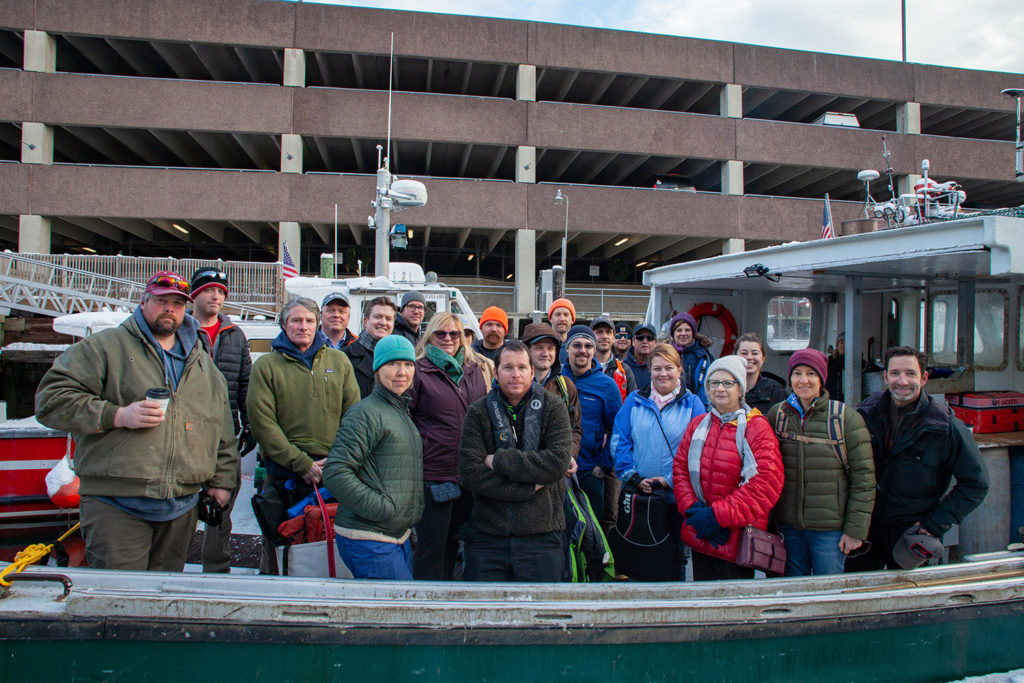An often-quoted phrase when it comes to life is, “It’s all about the journey.” I would like to share a journey I’ve taken over the last year with 28 Mainers looking to start their own aquaculture business.
I’m fortunate enough to be at the intersection of aquaculture and business in Maine, managing the Aquaculture Business Development Program for the Island Institute. This key piece of work revolves around helping fisherman diversify their income by starting a business in aquaculture. This program provides comprehensive support for one year (and additional help in year two or three as needed) as they endeavor to start a farm for what could be seaweed, oysters, mussels, or even scallops.
As this year comes to an end, we are wrapping up our fourth cohort of individuals participating in this five-year program, and it strikes me that this process has been unique for each member.
First, you have the early adopters who jump headlong into the process, excited at this nascent opportunity. Once they know what species works for them – they are off, diligently completing the necessary paperwork for leases, writing business plans, getting spreadsheets prepared, securing financing, and engaging the community–all in record time.
Then, there are those that start right away but ease into the flow of the process. They methodically look at species they intend to farm, talk to other farmers, and coordinate with local universities to understand the latest technology or research. Their business plans evolve over time as they seek to understand the market and how best to establish their brand and prepare to sell their product in Maine or beyond. Some draw up business plans or partial versions of one, while others leave the writing out and focus more on the numbers—if the spreadsheet looks good, they do what they need to do to get in the water.
Finally, others wade in more slowly. They stay present in their very real lives of family needs and take time to discern how this new model will fit their lifestyle. As things like bait shortages, shifting lobster populations, and community views on aquaculture evolve, they evaluate where they fit. Like most of us, they shift their process as the world shifts around them.
What I’ve learned best from this process is that the business model evolves over time and grows to best fit each individual. With this in mind, I would like to congratulate all those in our 2019 cohort on their progress—it truly is all about the journey!
To see photos from the 2019 Industry Day event, culiminating this year’s program work, check out the photo gallery here.
To learn more about our Aquaculture work, including the Business Development Program, click here.


